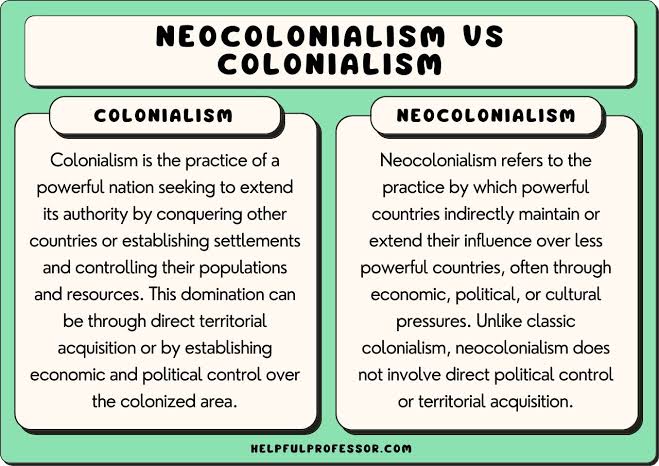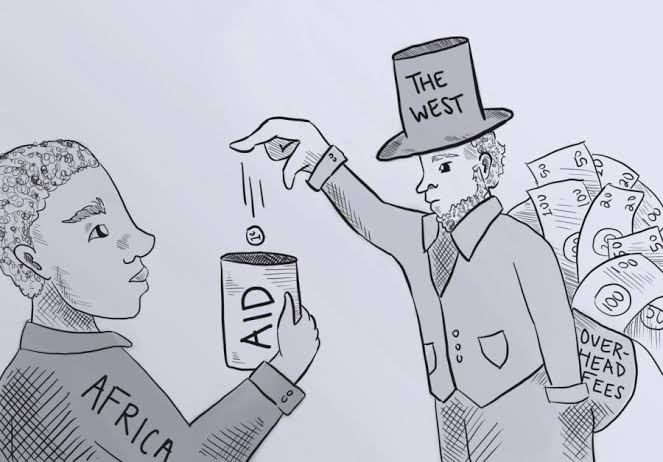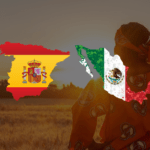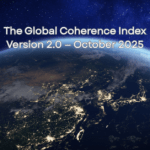Defining Neocolonialism
Neo-colonialism is a term that captures a complex and often subtle form of dominance, emerging prominently in international relations and geopolitical strategies post the era of classical colonialism. Unlike the direct governance and control that characterized colonialism, neo-colonialism is the practice of using economic, political, and cultural pressures to influence or control a country, typically one that has recently gained independence.
Through mechanisms like capitalism, globalization, and cultural imperialism, former colonial powers and other economically dominant nations continue to exert influence over the sovereign affairs of developing nations, often under the guise of aid, investment, or cooperation.
A case study that brings to light contemporary instances of neocolonialism is the event titled “SA, CAR teams attend neo-colonialism event in Russia.” This gathering serves as a focal point for discussing the ongoing impacts and nuances of neo-colonial practices in today’s geopolitical landscape, particularly highlighting how such events can facilitate dialogue and understanding regarding the multifaceted nature of neo-colonial influences in the modern era.
The Roots of Neo-Colonialism
Historical Background
The colonial era left indelible marks on the political, economic, and cultural landscapes of nations around the globe. As countries emerged from the shadow of colonial rule to embrace independence, the legacy of colonialism persisted, morphing into new forms of influence and control. This transition period highlighted how former colonial powers sought to maintain economic controls and influence over their erstwhile colonies, paving the way for the practices that would come to be identified as neo-colonialism.
The Theory of Neo-Colonialism or Neocolonialism
The concept of neo-colonialism was significantly shaped by thinkers like Kwame Nkrumah (1965), the first President of Ghana, who was among the first to articulate the mechanisms and effects of neocolonialism. Nkrumah and others argued that independence was only the first step towards true sovereignty, as economic control, political manipulation, and cultural dominance continued to bind former colonies to their former rulers or new external powers. Neo-colonialism, as such, manifests through continued economic dependencies, political puppeteering, and the erosion of indigenous cultures, even in the absence of direct colonial rule.

Mechanisms of Neocolonialism
Economic Dominance
The economic aspect of neocolonialism is perhaps the most tangible, with foreign investments, debt, and control over natural resources acting as primary tools for exerting influence. Developing nations often find themselves in a web of financial dependencies, where the promise of growth and development comes attached with strings that serve the interests of foreign investors and nations more than those of the country itself.
Political Influence
Externally wielded political influence is another cornerstone of neo-colonialism. Through diplomatic pressure, military interventions, or the clandestine support for certain political factions or parties, powerful nations can steer the political direction of a sovereign country in a way that aligns with their own strategic interests, often under the guise of promoting democracy or stability.
Cultural Imperialism
Cultural imperialism is the subtle yet profound spread of cultural norms and values from dominant countries to others, influencing or outright replacing local cultures, traditions, and identities. This facet of neo-colonialism not only undermines the cultural sovereignty of nations but also promotes a homogenized global culture that reflects the interests and values of the dominant powers.
The exploration of neocolonialism, through its historical roots and contemporary mechanisms, underscores the importance of vigilance, dialogue, and cooperation among nations to foster a world order based on mutual respect, sovereignty, and equitable development. The “SA, CAR teams attend neocolonialism event in Russia” serves as a timely reminder and platform for addressing these critical issues, offering a pathway towards understanding and, ultimately, overcoming the legacy and practice of neocolonialism in our time.
Neo-Colonialism in the Contemporary World
The forces of globalization, including the pervasive influence of multinational corporations and the strategic crafting of international trade agreements, play a significant role in the modern manifestations of neo-colonialism. These global forces often establish economic relationships that mirror the exploitative patterns of the past, where the wealth and resources of developing countries are leveraged to the benefit of more developed nations under terms that are less than equitable. This contemporary form of neo-colonialism not only perpetuates economic dependencies but also maintains a status quo that favors the global north.
In examining this dynamic, we see instances where countries rich in natural resources find themselves in partnerships that exploit these resources without providing commensurate benefits to the local population. Similarly, debt mechanisms and trade agreements can bind countries to unfavorable economic policies dictated by more powerful economies. This neocolonial relationship is further complicated by the role of international financial institutions, which often prescribe economic policies and reforms that serve to entrench these inequalities.
The “SA, CAR teams attend neo-colonialism event in Russia” Analysis
This event, officially titled “Forum of Supporters of The Struggles Against Modern Practices Of Neo-colonialism – For The Freedom Of Nations,” hosted by the United Russia party and reported by the Russian state-owned news agency Sputnik, serves as a significant focal point for discussions on neo-colonialism. Attended by Central African Republic (CAR) President Faustin-Archange Touadera, a delegation from South Africa’s ruling ANC party led by Secretary-General Fikile Mbalula, and representatives from countries including North Korea, this forum underscores the growing concern and resistance against neo-colonial practices and the influence of the West.
The participation of these nations, particularly those considered Russia’s allies in Africa, is of great importance. It signifies a collective acknowledgment and a step toward addressing the enduring impacts of neo-colonialism. Russia’s role in convening this forum and its efforts to create a body to combat neo-colonialism highlight its strategic interests in Africa, including fostering economic investments, military cooperation, and political influence. This not only reflects Russia’s geopolitical ambitions but also presents an opportunity for African nations to diversify their international relationships in their quest for greater sovereignty and development free from neo-colonial constraints.

The Impact of Neo-Colonialism on Africa
The economic, political, and social landscapes of Africa continue to be shaped by the lingering effects of neo-colonialism. Economically, African countries often grapple with challenges that stem from an unequal global system that prioritizes foreign interests, leading to exploitative resource extraction, onerous debt burdens, and trade imbalances. These conditions not only inhibit sustainable development but also perpetuate economic dependency on former colonial powers and other developed nations.
Politically, the sovereignty of African nations can be compromised by external influences that dictate or heavily sway internal affairs, from election outcomes to policy decisions. This undermines the democratic processes and the ability of African states to pursue policies that reflect the will and needs of their populations.
Socially and culturally, neo-colonialism has contributed to a loss of identity and cohesion within African societies. The imposition of foreign cultures and values, often through the dominance of Western media, challenges the preservation and celebration of indigenous cultures and traditions. This cultural imperialism not only erodes the social fabric but also impedes the development of a unified national identity that is critical for the collective progress of African nations.
In addressing these multifaceted impacts, forums like the one held in Russia play a crucial role in facilitating dialogue, building alliances, and crafting strategies that empower nations to reclaim their autonomy and chart a course towards a more equitable and self-determined future.
Sources:
- BBC Africa Live. (2024, 15 febrero). BBC. https://www.bbc.com/news/live/world-africa-68124897
- Zamobserver. (2024, 15 febrero). zamobserver. https://zambianobserver.com/sa-car-teams-attend-neo-colonialism-event-in-russia/
- Nkrumah, K. (1965). Neo-Colonialism, the Last Stage of imperialism by Kwame Nkrumah. https://www.marxists.org/subject/africa/nkrumah/neo-colonialism/introduction.htm









No responses yet